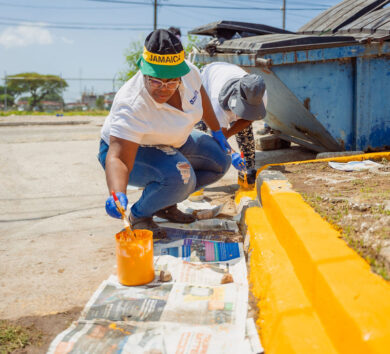

The coronavirus (COVID-19) pandemic engaged the world in a game of chicken with no plan to yield so, two years on, the taunt continues.
The world did not yield nor retreat, so for the most part, the game has continued with near misses and, at times, head-on collisions. The latter resulted in sickness and death, negative effects on lives and livelihood, and almost two years later, the game is still on. ‘Long COVID’ now is the lingering effect on some persons who suffered from the disease.
This is the background against which businesses have been managing. But how prepared were we—the CEOs, CIOs, CMOs, managers, supervisors, technicians—the top- and middle-tier managers who have to be providing leadership for all who look to us for direction and stability in this time of crisis and an uncertain future?
I declare that research findings and scholarly articles abound, but this article is from my personal perspective as the head of a complex organisation—a model developed from niche business areas and for which there is little direct comparison in my space. So, when the pandemic was declared in 2020, it was a question of how prepared we were.

Policies and procedures were geared towards normal, everyday business, and of course, including a business continuity plan, which makes reference to communicable diseases. The referred diseases are usually those related to mosquito-borne diseases such as dengue, chikungunya and perhaps zika, the flu, hepatitis, and enterovirus (diarrhoea).
Other communicable diseases as we grew to know or hear of them have been tamed by vaccines such as tuberculosis, polio, mumps, measles, rubella and far back in the rearview mirror are leprosy, cholera and we escaped the dreaded ebola which badly affected some countries on the African continent.
The first order of business when the coronavirus struck was to review and revise our business continuity plan to include business recovery, invoke occupational health and safety measures as a precursor to developing COVID-19 protocols driven by the public health system and crafted by the private sector. As a matter of urgency, protocols for the workplace, cleaning and sanitisation and other business-specific ones came into being.
Nation-States established protocols, amended legislation, adopted a variety of orders from international bodies and agencies – WHO, CDC, OSHA from developed countries such as the USA – OSHA and others.
Management textbooks almost immediately became irrelevant, and pundits seized the day. Business leaders in need of new operating models quickly huddled to craft responses for business recovery and to sustain their businesses in the emerging uncertain times.
The normal way of working could no longer be relied on, so the threat of the future of some businesses became real; examples include hospitality and tourism, entertainment and the global services sector (GSS), formerly known as business process outsourcing (BPO).
The game of chicken continued with the virus, hence management had to change business models and operating strategies to keep businesses afloat. Some business areas tanked, such as hospitality and tourism, travel, entertainment and sports, and not to be left out, the worst hit was education. In this regard, sector-specific models emerged. Prominent among these were work from home, blended versions of what could be launched, chiefly for education and the GSS.
Yet in the crisis and uncertainty, some businesses thrived while new ones emerged. These were in direct response to needs brought on by the pandemic. Included were cleaning and sanitising, supplies related to the precautions, treatment and care of illnesses, shopping and delivery. Technology competing with humans, and the value of innovation presented opportunities.

As it is said, “do not waste a crisis,” it is now appropriate to say, “do not waste a pandemic”. Valuable lessons are learned which pushed pandemic management to the forefront of business planning and coordination. Pandemic preparedness must now become an integral part of business continuity and recovery plans.
The challenge to return to normalcy is informed by public policies and guidelines and we are now hearing terminologies like “new normal”. I am not sure of a clear definition for this. As issues emerged at work, home, communities and internationally, the value of communication, education, international cooperation take on new meaning. No one country nor region can play the game of chicken with the coronavirus pandemic.
Pandemic management has to be entrenched in business models in order to be prepared for another pandemic if, when and where, one will raise its ugly head in the near or far into the future.
Pandemic management must therefore embrace and integrate whatever has been learned and when implemented will cause businesses not only to survive but to thrive. Some businesses may fail and succumb to the vagaries of the pandemic, and the pandemic may not even be the real cause of their demise. However, management practices and performance and lessons learned will inform the future.
“It is not the strongest or the most intelligent who will survive but those who can best manage change.”
—Leon C. Meggison.
Audrey Hinchcliffe is CEO and founder of Manpower and Maintenance Services Limited Group. Email comments and correspondence to [email protected].







Comments